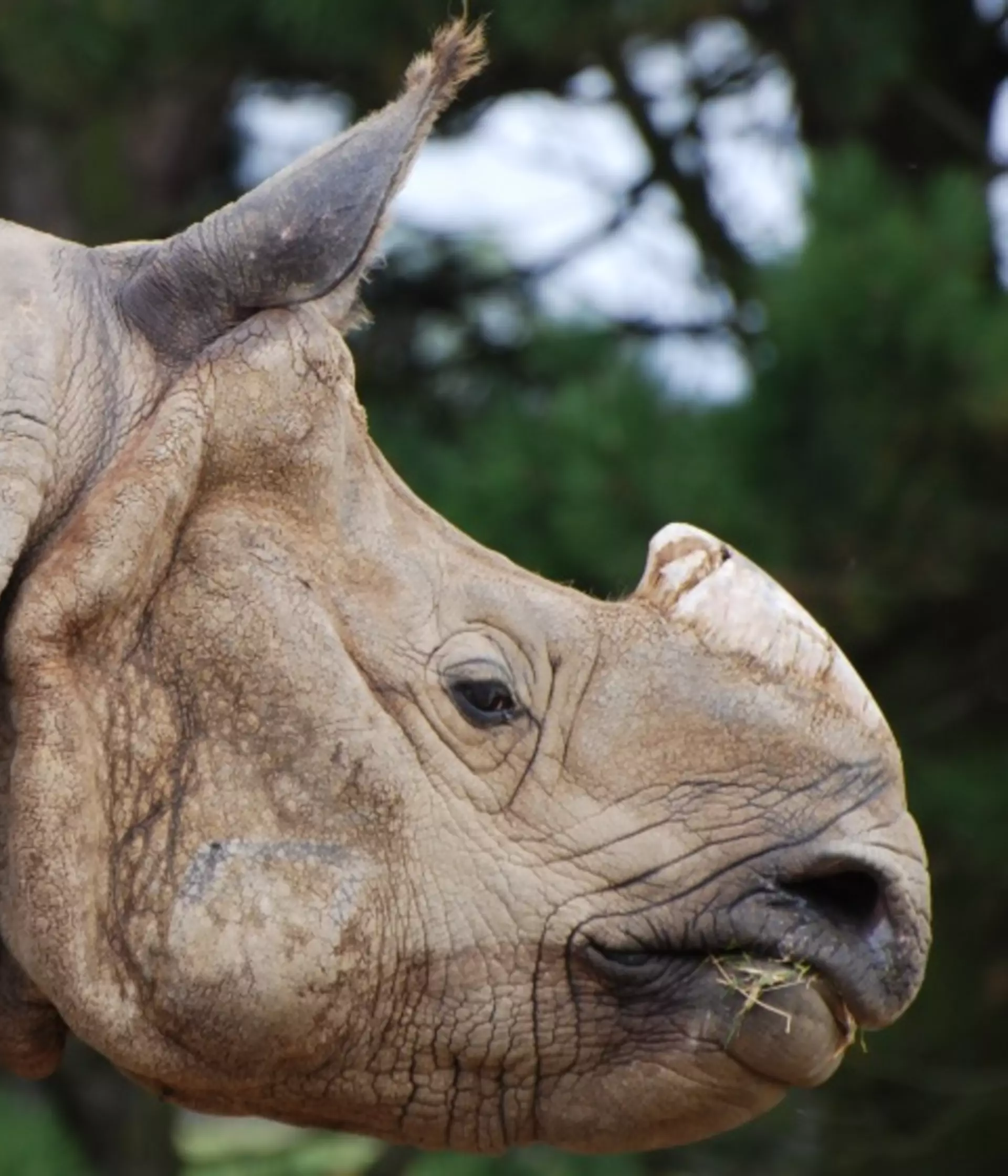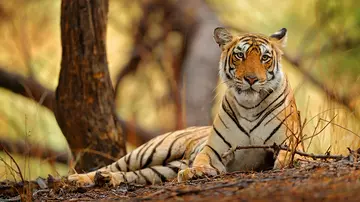
ZSL
Zoological Society of London
Human activity across the world is pushing nature to its limit, causing loss of biodiversity and threatening critical systems that support communities. It’s only by working together with communities on the ground, that we can make meaningful action for the conservation of wildlife, helping people and wildlife live better together.
Our ‘For People, For Wildlife’ appeal in 2019 was set up to achieve this with the communities who live alongside important wildlife habitats in Nepal and Kenya. Thanks to your incredible generosity, the appeal raised £1,553,736 including £702,074 of matched funding from the UK government.
These funds are now being used to support the livelihoods of people who live side-by-side with wildlife, to protect the forests and savannah, and save elephants, rhinos and tigers from extinction.

Human-wildlife conflict in Nepal and Kenya
On the edges of national parks in Nepal and Kenya, life can be tough. Many of the people who live in these areas have very limited options for income generation, meaning it’s difficult to raise enough money to meet their basic needs throughout the year. Under pressure, some people are pushed to the limit to feed their families. Worse still, they can become vulnerable to exploitation by the international illegal wildlife trade.
Living alongside wildlife presents its own challenges, with frequent conflict between humans and wild animals competing for resources. Crops are trampled by elephants and livestock attacked by carnivores. Livelihoods in these areas are heavily reliant on the natural ecosystems, often leading to over exploitation resulting in habitat degradation and fragmentation. Families risk their lives entering the national parks to gather firewood and graze cattle. This has disastrous consequences for both the local people and endangered wildlife.
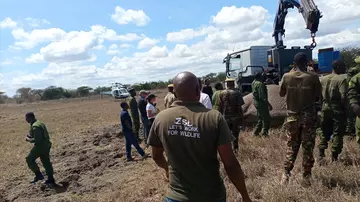
For People, For Wildlife
In November 2020, thanks to your support of our For People, For Wildlife appeal and matched funding from the UK government, we launched a new conservation project to improve the wellbeing of 3,251 people in four rural communities in Kenya and Nepal. This work is protecting natural resources, whilst simultaneously saving wildlife from unsustainable exploitation.
We’re working with communities to support co-existence with wildlife through improved livelihood opportunities, financial resilience, tolerance of wildlife and human wellbeing. This in turn lowers the burden of living alongside a national park, reducing the need to engage in wildlife crime and allowing protection of vital ecosystems.
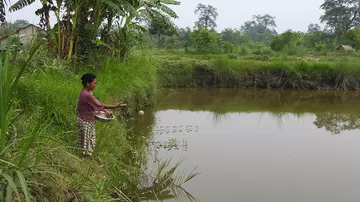
Wildlife conservation supporting people
Over the last year and a half, we’ve been working with the communities to build trust and develop a network of community banks. So far, we’ve supported 443 members, over 80% of which are women, with savings and loans for sustainable livelihood activities. These banks have also provided an important platform for education and training and discussions about wildlife conservation, with over 300 people getting involved in coaching on personal finances, governance and enterprise development so far.
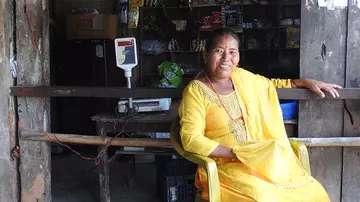
A notable success was engaging with a community in Kenya that had previously refused to interact with conservation authorities. We’ve now set up the first community bank there to open discussions about conservation and ways to reduce human-wildlife conflict.
Through this project, relationships between the communities and wildlife conservation authorities have improved, with regular multi-stakeholder meetings and community drop-in events, joint community patrols and bus tours into the national parks.
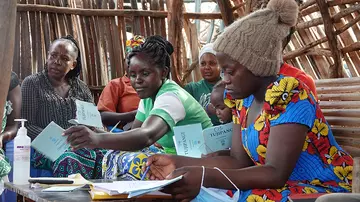
Thoughts from the communities
We are starting to see community attitudes towards wildlife improve as community members understand the importance of protecting their natural resources and wildlife for generations to come.
Manrajani Musahar, Chairperson of the community bank in Pithauli, Nepal said; “The community bank is creating solidarity among the members, where they share their stories, issues, and learn from each other. They also support each other’s initiatives by buying from each other. They also go together for conservation activities, such as patrolling, afforestation and are active in interacting with forestry officials”.
“Our community is growing in confidence and demonstrating to the world that we are capable of much more than just fish farming. I've seen progress in a single generation and hope to see even more in our lives.”
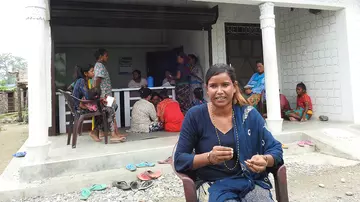
She also mentions that the community bank is much more sustainable than one-time aids or programmes because it is owned by the community. In the long run, as these local businesses grow, the funding in the community bank grows as well, creating a virtuous cycle.
“We can see a huge potential for eco-tourism in our village. We have naturally rich forest and wildlife near us, we have a beautiful culture we can showcase, we have organic produces, and we want to make use of all of these resources we have, while also showcasing our community. When we have enough funds, we aim to establish a communal eco-tourism business in our community.”
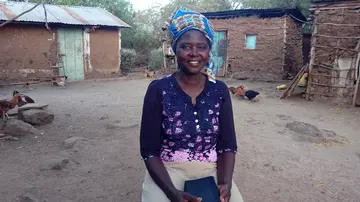
In Kenya, Pauline Mwongela, a community bank member said; “First, through the trainings, I have learnt that the environment including trees are very beneficial to us. Even the way I relate with wildlife has changed. I now know they are of great benefit.”
Another member, Michael Sammy said; “Through several trainings we have had from the community officers I have learned the importance of human wildlife coexistence. To me this is very important because we are neighbours of the park.”
Moving forward, we will be supporting the community members to adopt new low-impact livelihoods options to decrease their reliance on wildlife and natural resources. This is already being well received by the community members from the optimism they expressed in being a part of this project.
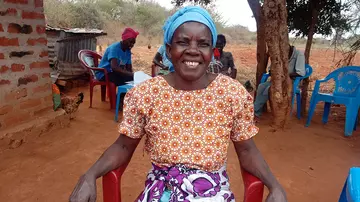
Loise Wayua, community bank Chairperson said; “I wanted to be part of the ZSL project because on the introduction meeting, the community officers explained to us that the organisation has an objective of improving our living standards (both personal and family income), educating us on the importance of human wildlife coexistence as well as sensitising us on the importance of environmental conservation.”
What’s next?
Over the coming months, we will build on the foundations of the community banks by helping members to identify economically viable livelihood opportunities that have low environmental impact.
Members will be supported through training, mentorship and loans from the community banks to establish these enterprises. Alongside this, we will be training and implementing strategies to reduce human-wildlife conflict in and around the national parks, helping improve people’s tolerance towards wildlife and move towards a future of coexistence that benefits both people and wildlife.
Thank you!
We want to say a huge thank you to everyone who donated to our For People, For Wildlife appeal, making this work possible. Whether you visited our Carnaby pop-up exhibition, took part in a fundraising event, or donated online, we are so grateful for your support.
ZSL has been building connections between people and wildlife for 200 years. Today, as human activities push our planet to its limits, that’s more vital than ever – be it working together with communities in Nepal and Kenya to save animals on the brink of extinction or bringing people closer to nature through our leading conservation Zoos.
If you feel inspired by this story, please consider supporting our work to bring wildlife back from the brink of extinction with a monthly donation.

